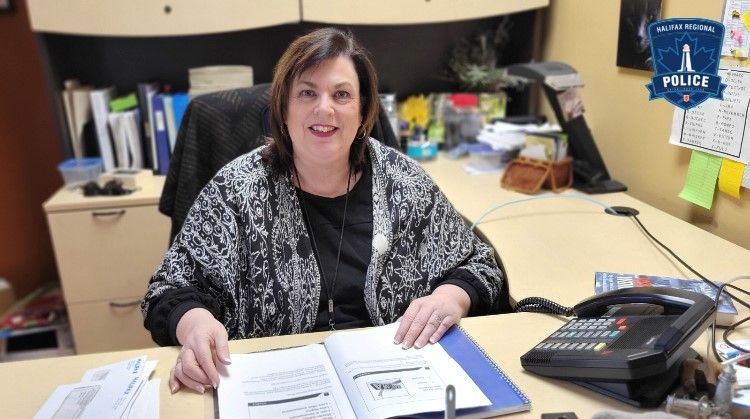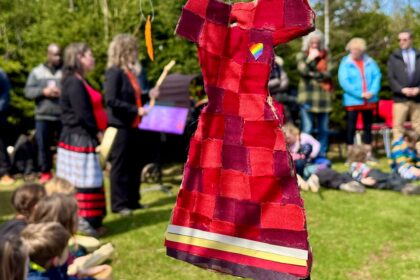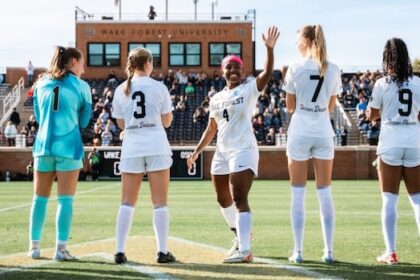Published Apr 10, 2025 • Last updated 8 hours ago • 4 minute readDolly Mosher, the manager of HRP’s victim services program, says helping offenders work through the court process can help reduce future incidents,A Halifax Regional Police victim services program that works with offenders is starting to gain interest from other jurisdictions.The domestic violence offender navigator program started in 2019 as a pilot with funding from the Nova Scotia Status of Women office and later the Canadian Women’s Foundation and other sources, but it is now a position funded by HRP.THIS CONTENT IS RESERVED FOR SUBSCRIBERS ONLY.Subscribe now to access this story and more:Unlimited access to the website and appExclusive access to premium content, newsletters and podcastsFull access to the e-Edition app, an electronic replica of the print edition that you can share, download and comment onEnjoy insights and behind-the-scenes analysis from our award-winning journalistsSupport local journalists and the next generation of journalistsSUBSCRIBE TO UNLOCK MORE ARTICLES.Subscribe or sign in to your account to continue your reading experience.Unlimited access to the website and appExclusive access to premium content, newsletters and podcastsFull access to the e-Edition app, an electronic replica of the print edition that you can share, download and comment onEnjoy insights and behind-the-scenes analysis from our award-winning journalistsSupport local journalists and the next generation of journalistsRegister to unlock more articles.Create an account or sign in to continue your reading experience.Access additional stories every monthShare your thoughts and join the conversation in our commenting communityGet email updates from your favourite authorsSign In or Create an AccountorArticle contentDolly Mosher, the manager of victim services for HRM, said there is a navigator to help victims of domestic violence move through the court system and connect them to service providers.What was lacking, she said, was someone to work with offenders who were taking responsibility.Officers ‘trying to play two roles’There is a domestic violence police officer who works in the unit who contacts an accused offender to go over any release conditions and answer questions about them.“He was having difficulty because offenders were saying, ‘I need to talk to her because I need to get money to her for rent,’ or ‘I need to figure out how I’m going to get the kids on the weekend,’ and things like that.”She said the officer in the unit was trying to fill that role and provide information, but if the offender breached conditions it would be the same officer who would have to go and arrest them.“He felt like he was trying to play two roles that really were very opposite to each,” Mosher said.Article contentThat led her to come up with the position.Recommended from Editorial Bad Chad’s custom car videos reaching millions on YouTube, Facebook Could tariff-dodging ships end up in the Port of Halifax? “If the offender wanted to accept responsibility, if the couple were planning at some point getting back together or if they just decided they didn’t want to get back together but wanted to safely co-parent, this position would work very well,” Mosher said.“We could connect an offender with housing or counselling. Our navigator has reached out to employers to say, ‘This is the situation, he has accepted responsibility and is looking to get counselling, but he may have to leave half an hour early, would you support that?’”Ending harm in householdsShe said there has been a great deal of success from those kinds of efforts. That success is measured in the people enrolled not reoffending so no more harm comes to their partner or children.Mosher said most of the people enrolling in the program are not reoffending.Article content“It keeps the victims safe, the kids are safe, and police are not being tasked to go out and arrest again on another domestic where there’s been an assault,” she said.Because of the connections the program has, it can get offenders into counselling sooner, Mosher said, which is better than it happening through a court order at the end of the legal process.“We’re looking at a year and some months later and then he goes on a waiting list, where we can get him into counselling pronto; he could be in within weeks.”She said anyone accepting responsibility can be accepted into the program.If the victim is interested in varying orders or a reconciliation, the navigator will reach out to the offender to get a sense of whether it was an out-of-character, one-time incident or what factors there were.When the navigator contacts an offender and asks how they’re doing, “it’s really interesting the response you get, from ‘Why do you want to know?’ to a guy completely breaking down and being so sorry. . . . There’s a whole realm of responses that we get,” Mosher said.Article contentAs might be expected, she said, there are also responses from the public wondering why the unit would deal with offenders.“We’re not getting them off on their charges, we have nothing to do with whether their charges go away, we’re just offering them the opportunity, if they want, to accept responsibility and get them the help they need,” she said.Most of those who accept responsibility will get a referral to the domestic violence court that is available in HRM, Mosher said.“We just connect them with the intake officer, we don’t have any real say on whether they get accepted or not, but most of those who want to make change go through the court, and they go through a pretty rugged counselling over a year to two-year process and they are coming back to report to (the court).”The court is based around offenders who are pleading guilty, but if they get ejected from the program for not following its requirements the case goes back to the provincial court level for sentencing.Article contentThe ultimate goal is to make things safer for victims while giving the offender the chance to get through the system without exacerbating the emotions or situation that landed them in court, Mosher said.“A lot of the offenders have lived experience with violence in the home growing up. . . . I’s learned behaviour for them,” she said.“It’s an opportunity for them to learn that that isn’t the right approach, and there are ways you can deal with things in the home that don’t have to end up being violent.”The initiative is not available to what the program calls the “20 percenters,” people who they would not reach out to because of the nature of their offence or their history.“There are about 20 per cent that we would just not reach out to,” she said. “Our domestic violence officer makes the referral to the program, so he reviews the files first, and if this guy has multiple victims and multiple very serious assaults, (the officer) wouldn’t make the recommendation.”Article content
Halifax’s domestic violence offender program gains interest in other jurisdictions











